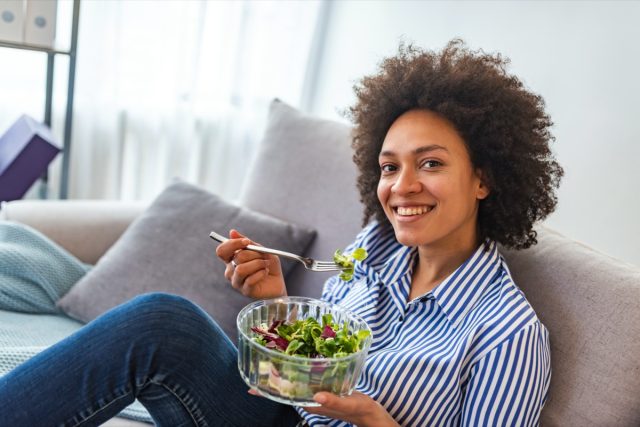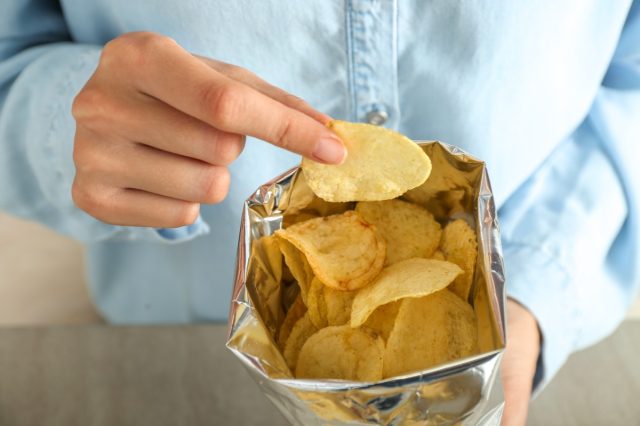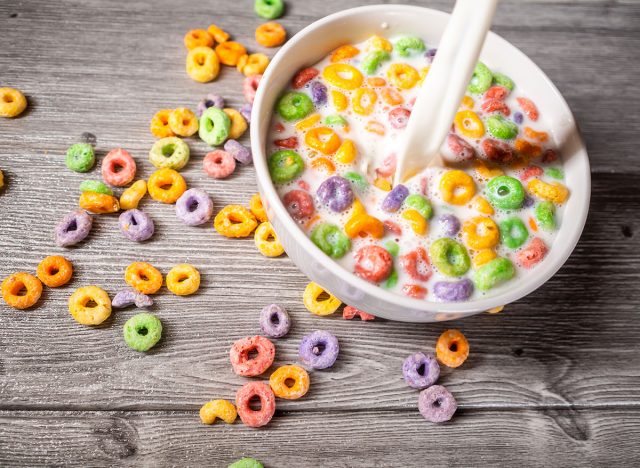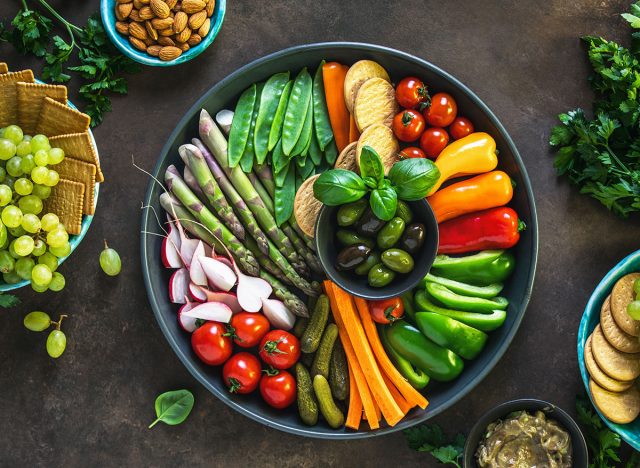
A close-quarters study of the daily trials of living with ALS or Lou Gehrig’s Disease — co-directed by the patient’s son with equal parts adoration and despairing frustration — “Eat Your Catfish” is a documentary every bit as tough-minded as its title is unexpectedly playful. That, as it turns out, is not a disconnect when it comes to Kathryn Arjomand, a New York mother of two who has been living with the neurodegenerative condition for years, and handles it with a blend of frank anger, exhausted acceptance and offbeat humor. Citing as inspiration the “wild overacting” of Julia Roberts in “August: Osage County” — where the line “eat your catfish” does indeed appear — Kathryn resolves to live as “a more dramatic version of myself.” Not everyone, least of all her negligent husband Saeed, is on the same wavelength.
That Julia Roberts allusion is the closest this determinedly minimalist film gets to any kind of gloss, as directors Noah Arjomand (the aforementioned son), Adam Isenberg and Senem Tuzen fashion a fly-on-the-wall setup that allows us to enter Kathryn’s life from her restricted point of view. With the camera usually mounted behind her wheelchair, we rarely see her face. Instead, her presence is felt via her own voiceover, delivered in turn through a Tobii speech-generating device, by far the most hi-tech element in this affectingly lo-fi enterprise. That modesty of scale shouldn’t prevent “Eat Your Catfish” from making an outsize impact in the documentary circuit following its IDFA premiere.
Though Kathryn’s previous, able-bodied life as an academic translator and doting mother to Noah and daughter Minou is glimpsed via archival family photos, “Eat Your Catfish” doesn’t dwell on her personal or medical history, preferring to focus on her efforts to live in the moment. She’s candid about the challenges of doing so, detailing her considerations of assisted suicide, and in one gut-wrenching scene, calmly dictating an email to her children with instructions for and after her death. “Get my body to a crematorium in a plain wooden box or a large IKEA bag,” she instructs with typically mordant wit — an asset that survives even the tone-flattening delivery of her speaking device.
For Kathryn, her interest in her children’s future is what keeps her alive. “Love makes life totally compelling,” she explains, and the film’s structure duly pivots on the familial milestone of Minou’s wedding, an event that brings her excitement and anxiety in equal measure. Otherwise, days of joy are increasingly few and far between in the large, book-lined apartment she shares with Saeed and a 24-hour cycle of carers, with the latter giving and inspiring markedly more affection than the former.
The film’s most challenging scenes address the bitter discord between Kathryn and her startlingly callous husband, often with Noah — who takes on much responsibility for his mother’s care — as an exasperated mediator. Saeed’s impatience with his wife’s disabilities and unwillingness to learn her needs make for some of the most discomfiting marital arguments ever captured on screen, in fiction or otherwise.
“I just want to live peacefully with people around me who actually like me,” Kathryn says. It’s a wish so simple as to be entirely heartbreaking, though “Eat Your Catfish’s” persuasive first-person perspective also details her frustrations with her own person — from her ever-weakening body to limited means of communication that simply can’t keep pace with her sharp, steely intellect.
In lieu of that ability, the filmmakers have given her full agency and expression in a portrait that never treats her as a victim or a martyr. Splitting shooting and editing duties between them — with Arjomand having captured thousands of hours of palpably intimate footage, before deferring to his co-directors’ more objective editorial eye — they have fashioned an unusually unsentimental, everyday document of ALS, tender in the expressly painful manner of a fresh bruise. One subtly pointed scene depicts Kathryn watching “The Theory of Everything,” the Oscar-winning prestige drama centered on the same disease. She makes no comment, but none is needed: Compared with her daily ordeals, the misty-eyed Eddie Redmayne vehicle may as well be science fiction.
‘Eat Your Catfish’ Review: A Family Is Divided by ALS in an Uncompromising, Emotionally Raw Documentary - Variety
Read More







![Image for [node:title]](https://eatnorth.com/sites/default/files/styles/article_freeheight/public/eat_habibi_eat_cookbook_0.jpeg?itok=r0zPNbDY)


